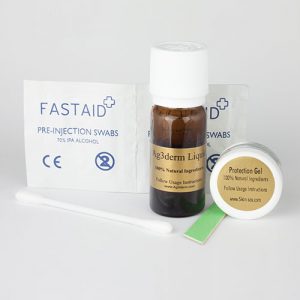Seborrheic keratosis is a fairly common skin condition that mostly affects people past the age of 40. In some rare situations, younger people are found to have the skin condition. Seborrheic keratosis is known to affect all people male and female regardless of physiological differences such as skin color and tone. The condition makes a person’s skin to appear scaly and can be quite unsightly. On a more positive note, seborrheic keratosis does not have any health implications. Some people have fears that the condition can develop into a form of skin cancer which is not the case. Seeking treatment for seborrheic keratosis is done for purely cosmetic reasons. There are some simple remedies to this condition that don’t require an appointment with a doctor.
Glycolic acid has been proven to be effective in treating seborrheic keratosis. The time it takes for glycolic acid to treat the condition is also quite short. The preparation method of glycolic acid solution is also very simple and can be done at home. All that a person needs is the concentrated acid and distilled water. The acid should be diluted to a concentration of 15%. The affected skin should be thoroughly washed before applying this solution. The glycolic acid solution should then be applied on the parts of skin affected by seborrheic keratosis and left to dry. It should be left for as long as possible. The solution should be applied twice daily for best results. Concentrated glycolic acid should never be applied on the skin. This could lead to serious complications and scarring.
Lactic acid is another treatment that can be done at home. The acid solution should be diluted with distilled water to a concentration of 12%. A topical application of the solution should then be done directly on the affected area. The solution should be allowed to dry naturally and left to stay for as long as possible. The best time to apply this solution is at night when it will not be wiped off. The solution should be applied on thoroughly cleaned skin and should be done twice daily for best results.
Glycolic acid, lactic acid and citric acid (Vitamin C) are a group of naturally occurring acids (alpha-hydroxyl acids) that have all been proven to be effective in dealing with keratosis. The acids operate in a similar way since they gently exfoliate the skin on the affected area. They also promote cellular regeneration and improve skin texture and tone.

